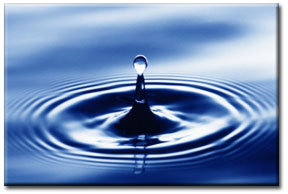Water Pollutants

Contaminants can also come from sewer overflows, manufacturing processes and faulty or failed local septic systems, and the presence of contaminants in water can lead to a range of health issues, including gastrointestinal problems and neurological disorders. Infants, young children, pregnant women, the elderly, and immunocompromised persons may be especially at risk for becoming ill after drinking contaminated water. For example, elevated levels of lead can cause serious health problems, especially for pregnant women and young children.
It is important to remember that the United States Environmental Protection Agency (EPA) does not regulate private wells.
You are responsible for testing your well water and making sure it is safe.
What should I test for?
Water quality testing can take various forms, but the most common is to look for Water Quality Indicators (WQI). These are typically:
Total Coliforms
Fecal Coliforms / Escherichia coli (E. coli)
pH levels
In addition, depending on local factors in the area in which you live, samples might be tested for lead, arsenic, mercury, radium, atrazine, and other pesticides.
Ready to Get Started?
To learn more about our Environmental Testing Services
click below, or contact us at (509) 720-0190
